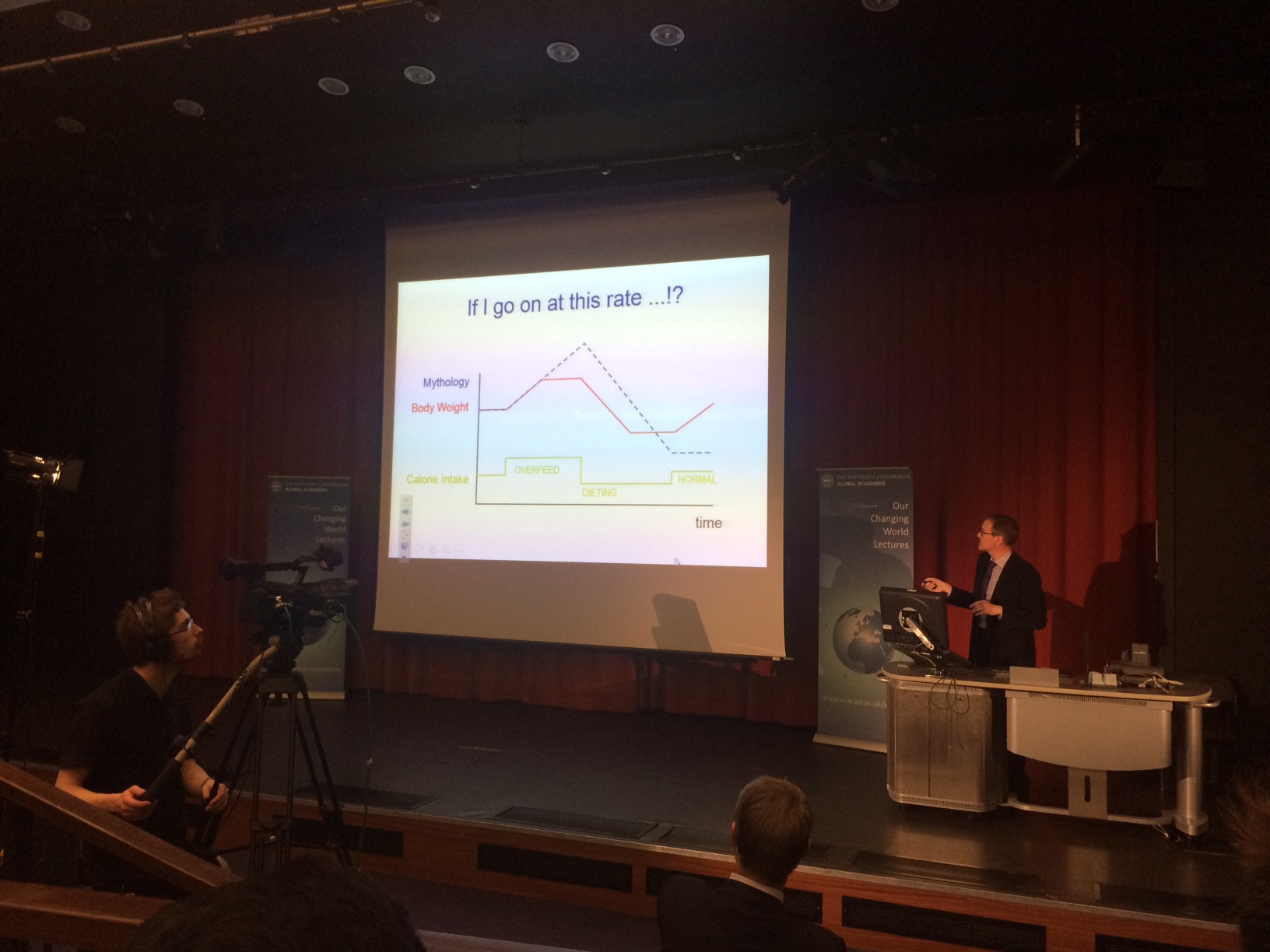Our Changing World: The obesity pandemic – winners and losers in adapting to affluence

Our Changing World lecture by Prof. Brian Walker on 13th October 2015; summary by Marlena Segar, 1st year student in Social and Economic History with Environmental Studies
It is no secret that obesity has become a pandemic; something Prof. Brian Walker emphasised at the beginning of his lecture has only arisen in the last 30 years. In which time it has progressed from something previously unanalysed to costing the NHS £47 billion a year. What is less well known however, is that some are genetically more susceptible to gaining excess weight.
The hypothalamus is key to understanding this, as it is the part of the brain that controls energy expenditure. Therefore patients with hypothalamic damage suffer from constant weight gain as there is no adjustment to their metabolic activity or hunger suppression through releasing satiety signals, both of which are controlled by the hypothalamus. Walker explained that a mutation in certain genes can lead to a much higher risk of obesity and a Genetics of Obesity Study showed all but one of these mutations were of genes found in the hypothalamus.
The solution for this is currently Walker’s main field of work, and as no country has currently been able to reverse the obesity crisis through prevention, other methods must be looked in to. The two most radical are drugs and surgery with surgery currently showing an average weight loss of 40% compared to just 4% from drugs.
A ‘dark cloud’, as Walker put it, hangs over drug advancement, following a trial of Rimonabant in 2006-9 where four patients on the drug committed suicide. This created a huge panic in the medical field, something Walker argued, needs to be overcome in order to effectively tackle this global problem.
As Walker clarified in the Q&A section, the ‘explosion’ of obesity is not genetic but, the fact that our genes can make obesity almost inevitable in this environment means risks in medical advances have to be accepted.





Recent comments